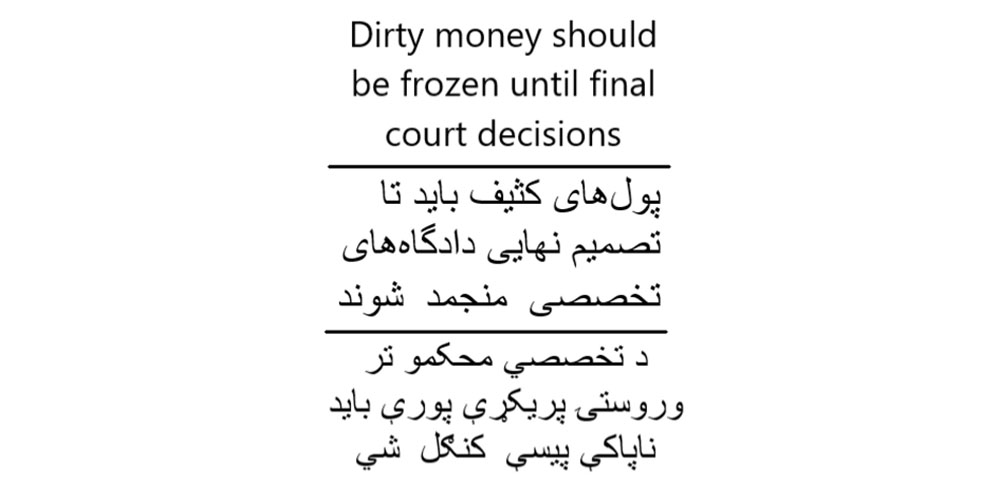Open Letter from Civil Society and Human Rights Activists of Afghanistan Regarding Cases of Political, Financial, and Administrative Corruption in Afghanistan
Afghanistan has been affected by widespread political, financial, and administrative corruption, leading to the breakdown of the political system and undermining trust between citizens and the government. Resources that were provided by the international community to Afghanistan from 2001 to 2021 for the benefit of the Afghan people were misused by corrupt politicians, impeding the country’s progress and well-being. These corrupt politicians have shown a lack of respect for basic moral principles and have exploited the vulnerable population, including children, women, the elderly, and the families of martyrs.
Recent investigations by global institutions and media have revealed corrupt political figures in Afghanistan and exposed their unlawful activities. In this open letter, civil society and human rights activists have raised several concerns:
Firstly, finacial and administrative corruption is a significant factor contributing to human rights voilations, as the misappropriated resources belonged to deserving Afghan citizens. Corrupt officials, including high-ranking government officials, violated human rights by using their authority for personal gain. The international community is encouraged to include corruption cases in human rights investigations.
Secondly, there must be no preferential treatment of corrupt individuals, as all key figures involved in corruption should be held accountable regardless of their political or social status. Collaboration with civil society and human rights activists is crucial for impartial investigations.
Thirdly, global cooperation is essential to uphold the rule of law and pursue corruption suspects in Afghanistan. The United Nations is called upon to take action under the United Nations Convention against Corruption (UNCAC).
Fourthly, corrupt individuals should not be allowed to seek refuge in friendly countries and their illicit assets should be investigated and frozen. Specific countries like the United Arab Emirates, Saudi Arabia, Turkey, Central Asian Republics, Russia, Iran, Pakistan, and India are mentioned in this regard.
Lastly, illicit funds should be frozen until final court decisions are reached, and governments are urged to give this matter careful consideration. The civil society and human rights activists of Afghanistan are committed to collaborating with international institutions and governments to promote transparency and accountability.
